

Truthout is committed to a vision of journalism in pursuit of justice. We understand that courageous journalism can and does drive social transformation. Through our work, we reveal systemic injustice; provide a platform for powerful ideas; elevate authentic storytelling; and develop journalistic practices that align with our dedication to accountability, equity and integrity.
We believe in building the world we want to live in — within our organization, through our journalistic work and through our work’s impact on society. For more on our editorial approach, please read Remaking Media in the Pursuit of Justice and A Call to the Media: Let’s Go Beyond “Preserving Democracy.”
89% OF OUR BUDGET
WAS MADE UP OF
INDIVIDUAL DONATIONS
THE AVERAGE DONATION WAS JUST 24 DOLLARS.
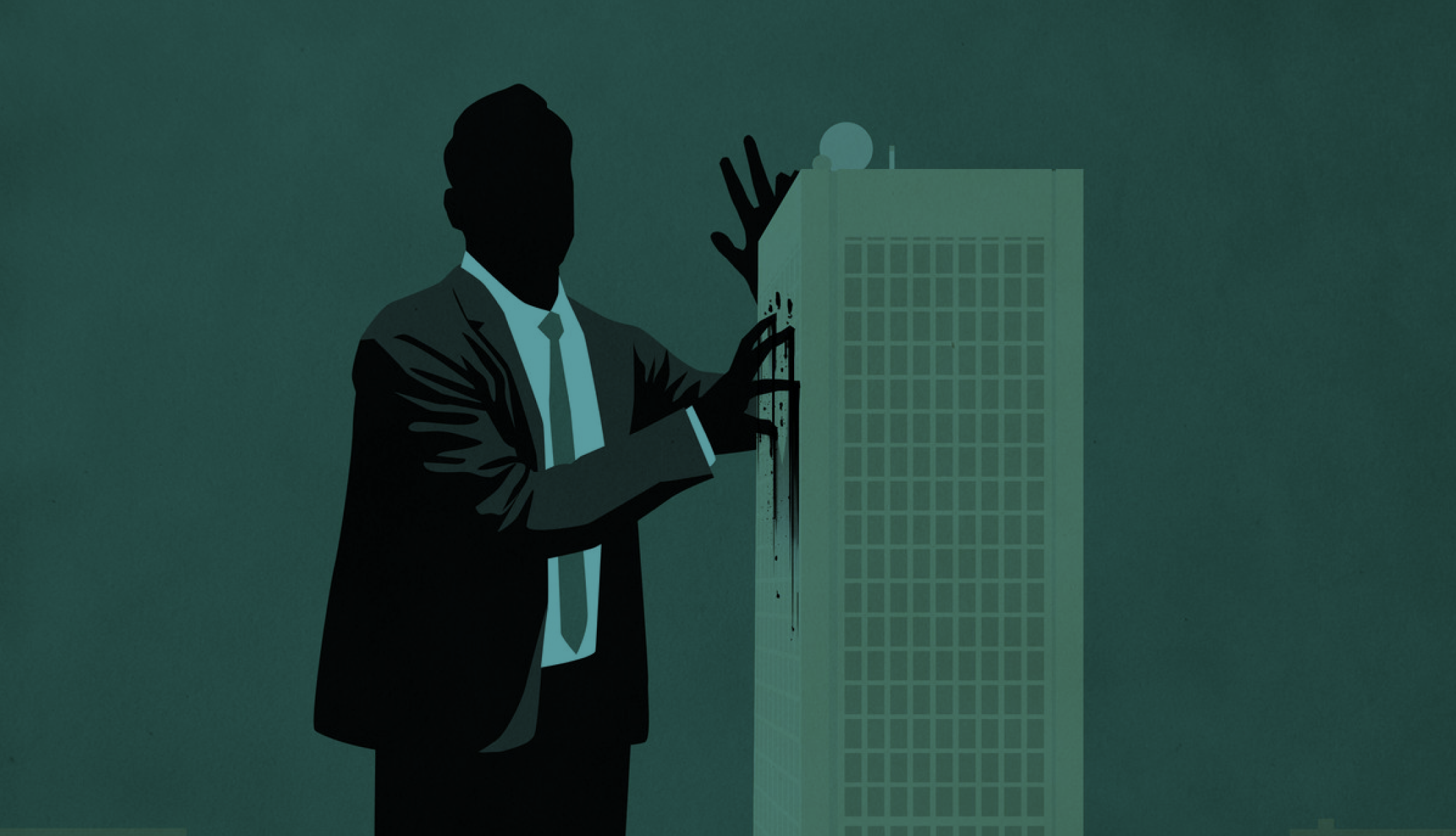
Producing truly independent media means there is no corporate or government influence over what gets published — that’s hard to come by these days. But Truthout is different from other media: We do not accept a single cent from corporate “partners” or advertisers, we are not owned by anyone and we have never been part of a media conglomerate. Instead, Truthout has been funded by readers since the beginning. In FY2019, 89 percent of our budget was made up of individual donations — and the average donation was just $24!
We strive to live our progressive values every day. We were the first online-only news organization to unionize, and we aim to lead the way in workplace practices just as we do with our cutting-edge journalism. For example, our parental leave policy is a step beyond any offered by an organization of our size. New parents are entitled to 20 weeks of paid leave, health care throughout the leave, and other benefits. Meanwhile, we pay all staff a living wage and remain firmly committed to paying interns.
We dream of — and will continue to fight for — a world where essentials like health care and time to care for one’s children are not tied to employment. In the meantime, we're dedicated to providing for the needs of the people who work tirelessly to produce our courageous independent journalism.






































During his third year in office, Trump ramped up his aggressive erosion of an already crumbling democratic system. Acquitted from impeachment after the Ukraine scandal, the president prepared for the 2020 election by cementing his role as head demagogue.
Legal and political analyst Marjorie Cohn's column, Human Rights and Global Wrongs, covered Trump's lawbreaking, the dangers his administration poses to civil rights and civil liberties, and his judicial nominations. During Trump's impeachment process, Cohn noted that his order to defy subpoenas is itself grounds for impeachment. She also wrote about the president's continued terrorization of immigrants, and urged policymakers to observe the 9/11 anniversary by calling for an end to the Afghan War.
Senior editor and lead columnist William Rivers Pitt closely followed the presidential administration's saga of political mayhem. He narrated every step of the presidential impeachment process and scrutinized Trump's erratic and unlawful assassination of Iran's top general, Qassim Suleimani. Pitt wrote extensively about the Democratic primary debates and the rise of progressive candidates in the party. As Joe Biden and Bernie Sanders fought for the Democratic nomination, Pitt shed light on the high walls of the party establishment and on Biden's lying about foreign wars. Michael Corcoran also explored the role of progressivism in the Democratic party, writing about Bernie Sanders prevailing despite media bias against him and warning moderates against faking progressivism the way Pete Buttigieg often did during his campaign.
“Voter suppression exposes the paradox of Black citizenship in a racist society.”
— William C. Anderson
With a critical election looming in 2020, in the Truthout series Voting Wrongs, we worked to expose the injustices that disenfranchise vast numbers of people — and the bold efforts that seek to transform the way the United States does “democracy.”
Voter suppression exposes the paradox of Black citizenship in a racist society, wrote William C. Anderson, describing suppression efforts as modern-day reminders that Black people have still not been granted full citizenship. Senior editor and staff reporter Candice Bernd reported on new voting barriers erected by Republicans to disenfranchise students of color, just as young people were flexing their electoral muscle and more students began to vote. Lacino Hamilton commented that within the totalitarian environment of incarceration, merely granting people the right to vote without the power of self-determination, autonomy and freedom of action does not allow them to participate in democracy.
Among the most pressing issues facing the 2020 election was President Trump’s relentless attacks on and gutting of the United States Postal Service (USPS) right before a mail-in ballot heavy election. We covered these attacks on the USPS extensively, detailing the potentially illegal misdeeds of Trump-appointed Postmaster General Louis DeJoy and his board of GOP lackeys. Chris Walker reported on the flagrant gutting of USPS infrastructure and how Trump was delegitimizing the vote-by-mail system, and Alexis Goldstein detailed the widespread backlash against Trump’s USPS sabotage and election fraud schemes.
The rise of Trump and his political allies was part of why we launched Movement Memos, our new podcast hosted by contributing writer Kelly Hayes, which explores and inspires movement work and mutual aid across the country. Hayes has spoken with activists, organizers and journalists like Alan Mills and Mariame Kaba about digital organizing during a pandemic, how collective grief can empower us, how incarceration is especially deadly after the onset of COVID-19 and why fascists in the Trump administration are strategically suppressing grief in order to grow their own power.
Almost immediately after COVID-19 hit the U.S., it became abundantly clear that this pandemic would not only ravage nearly every aspect of our country, but it would also do so along the existing lines of inequality drawn by the hand of an increasingly oppressive capitalist system. We knew that dominant media outlets, which have long failed to adequately cover injustice and inequality, would fall short in covering these issues when they were exacerbated by the pandemic. In order to highlight the particularly stark impacts of COVID-19, we launched our series Despair and Disparity: The Uneven Burdens of COVID-19. We have published over 200 original articles in the series covering the political, economic, environmental and racial aspects of the pandemic, filling gaps in media coverage that might otherwise have gone unnoticed.
Currents of anti-Asian, anti-Black and anti-Muslim racism have coursed through this pandemic era. Public defender Rigodis Appling wrote on the way racist policing prevails because of and despite COVID-19, and investigative reporter Jen Deerinwater noted how the historic oppression of Native people and negligence of disabled people worsens the effects of the pandemic for both populations. Immigration writer Jack Herrera wrote about the xenophobic term “Chinese virus” and how close quarters spread and intensify the virus in Immigration and Customs Enforcement (ICE) detention.
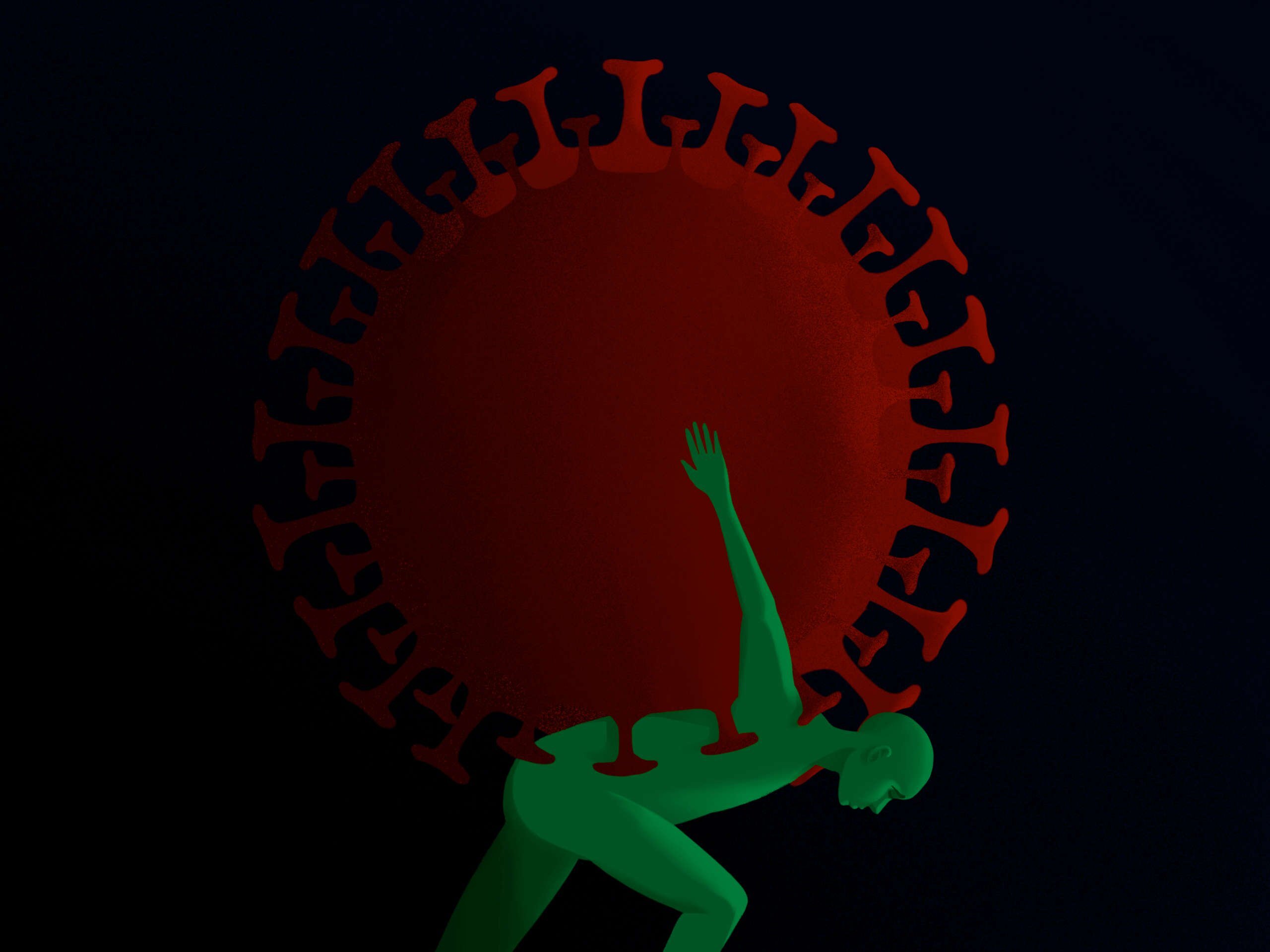
As the pandemic laid bare the abominable state of health care in this country, our authors called for true health justice, which includes Medicare for All. Political writer and lecturer Sasha Abramsky wrote about how, as the pandemic has shown, the lack of Medicare for All leaves a glaring hole in the American social safety net, while staff reporter Mike Ludwig noted that millions of uninsured people would be hospitalized by the virus.
News writer Chris Walker covered the multifaceted political implications of the COVID-19 pandemic, writing about how Trump silenced his own infectious disease expert to peddle unproven coronavirus treatment hydroxychloroquine, and how the president's former lawyer had a million-dollar contract with hydroxychloroquine maker Novartis. He also chronicled Trump's refusal to follow the advice of Dr. Anthony Fauci, the president's suggestion of firing the infectious disease expert, and a Democratic lawmaker proposing a bill to prevent that from happening.
“Fate has handed us a society-changing opportunity wrapped within a tremendous challenge.”
— Ejeris Dixon
While fascist policies and disaster capitalism intensified, we underlined the fact that the pandemic presented key moments to resist authoritarianism: As organizer Ejeris Dixon put it, "Fate has handed us a society-changing opportunity wrapped within a tremendous challenge." We heeded that call and published pieces on how workers have risen up against careless employers and how our governance could enact real change in reaction to the crisis. In an op-ed, Dean Baker presciently nailed responsibility for the botched pandemic response to Trump — in March, when the pandemic first hit the U.S.
As the pandemic went on, it became clear that the right would push for schools and businesses to reopen regardless of the state of the pandemic. Eleanor J. Bader documented the multifaceted ways that the pandemic was highlighting inequity in the school system and the limited ways that schools could be reopened safely.
Sociology professor Jenna A. Lamphere explained the necessity of a green stimulus in a bailout package. News writer Sharon Zhang wrote about how a bailout could be used not only to hold fossil fuel companies accountable but also for environmental cleanup. And, noting that migrant workers are essential but overlooked, attorney Jeremy McLean argued that these workers should be included in coronavirus relief. The tone around politics was shifting nationwide, and, as Noam Chomsky said in an interview with C.J. Polychroniou, if those in power “are not countered and overwhelmed by engaged popular forces, we will be entering a much uglier world — one that may not long survive.”
“...we will be entering a much uglier world — one that may not long survive.”
— Noam Chomsky
As services for elderly people and people with disabilities decline — even though these populations are most impacted by the virus — we have been shining a light on these injustices and putting forth alternate visions. Plus, we’ve amplified examples of mutual aid efforts around the country, which are supporting people in the here and now as well as helping to build the world we want to live in (even as they themselves face state repression, as investigative reporter Ella Fassler documents). Crucially, we have recognized that health justice also includes food access, labor rights, LGBTQ-accessible health care, mental health and addiction treatment, and much more. We have been covering all of these priorities extensively on our pages.

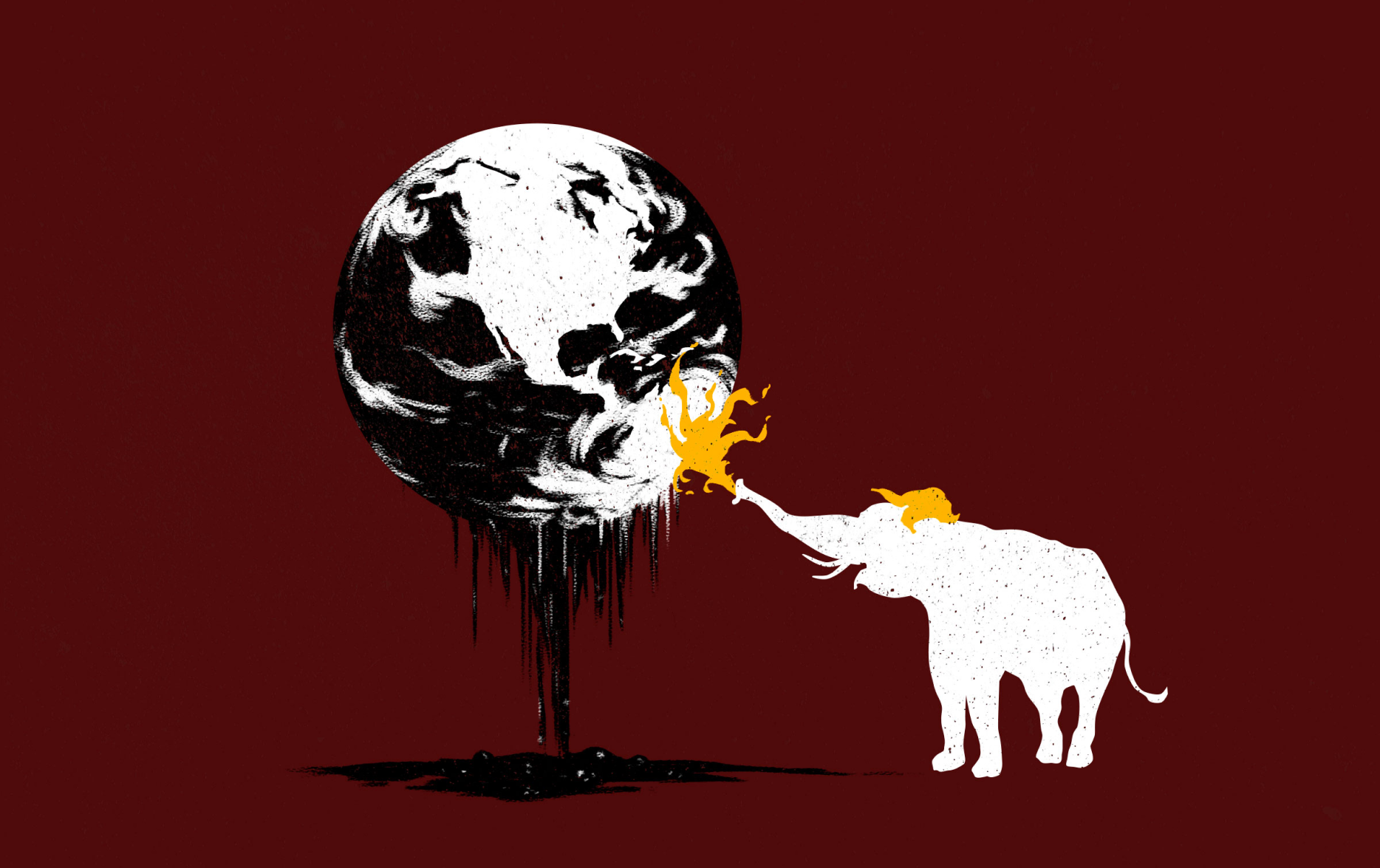
2020 marked a banner year for climate, both politically and in the way that the climate crisis accelerated. Through unprecedented, raging fires on the West Coast and a deadly hurricane season, we covered how public opinion on climate is changing across the political spectrum — and how the right is ignoring the ever more obvious effects of the climate crisis.
As the climate movement continued to put the heat on climate deniers, we showed how deeply climate denial is wound into corporate infrastructure, with writers Daniel Ross and Leanna First-Arai showing how industries like Big Agriculture and insurance support the oil and gas industry and block climate action.
When Congress passed a massive bailout at the beginning of the pandemic, they also handed money to the fossil fuel industry. We covered the insidious ways that the oil and gas industry fills its pockets leeching off the government, why an oil and gas bailout is a bad idea and how the fracking industry might be on its deathbed. Meanwhile, Alexis Goldstein covered how the GOP was looking into expanding the industry’s already bloated power by letting them sue sick workers seeking compensation.
2020 wasn’t the only record-breaking year; July 2019 was the hottest month ever recorded on Earth, and Dahr Jamail covered the rapidly melting ice around the globe. The Arctic is thawing so fast scientists are losing their measuring tools, he reported, and clarified that what happens in the Arctic does not stay in the Arctic. Meanwhile, in Alaska, the sea ice completely melted earlier than ever before, leaving no sea ice whatsoever within 150 miles of its shores as the northernmost state cooked under record-breaking heat through the summer.
As ice melts and temperatures rise across the globe, the fire season across the West Coast only worsens. When widespread, rolling fire-prevention blackouts in California made their debut in 2019, especially putting disabled people at risk, wildfires raged on anyway, leading to thousands of evacuations. And, in 2020, the wildfire threat was made especially bleak by the climate crisis throughout the West Coast, as skies darkened and the deadly combination of COVID-19 and a terrible fire season made for dangerous conditions for farm workers. Meanwhile, all along, Trump maintained almost complete silence about all of it.
In past years, Truthout has participated in the global journalism initiative to provide more coverage of the climate called Covering Climate Now. Through the Covering Climate Now initiative, our writers have analyzed big agriculture’s greenwashing attempts; what challenges we face in implementing equitable climate policy; the surge of climate activism; and the ways that we can adapt our infrastructure to be more climate resilient.
Truthout investigative reporters Candice Bernd and Mike Ludwig continued to write on environmental degradation. In particular, Ludwig explored Trump's futile and cynical attempt to prop up the coal industry, the increase of climate-driven displacement and Democrats' responses to the crisis as the climate justice movement turned up the heat on candidates. Meanwhile, Bernd continued her coverage of pipeline battles, reporting on Texas moving to criminalize protesters, and the detention of four protesters crashing an ALEC conference to resist the bill in question.
News writer Sharon Zhang analyzed the past year's escalation of the climate justice movement and explored the increasingly felt effects of global warming, reporting on the deadly wildfires in Australia, the fossil fuel industry's continued influence over environmental policy and how students at prestigious universities are rising up against fossil fuel money in their schools.
In 2020, journalist and historian Peter Montague began writing for Truthout regularly, and he brought his expertise on pollution and the environment with him. He reported on New Jersey’s groundbreaking new climate justice bill and tied tech governance problems with faulty climate solutions. As he explained how ecologically necessary forests are being destroyed by the climate crisis, Montague also continually underlined the fundamental political problem: “An emergency requires leadership. We don’t have that in the U.S.”

2020 was a tempestuous year, but we had at least one good reason to celebrate: our friend Lacino Hamilton, who we first reported on in our influential piece, Ring of Snitches: How Detroit Police Slapped False Murder Convictions on Young Black Men, in 2015, was exonerated in September. Hamilton was wrongfully imprisoned for a murder he didn’t commit in 1994. He wrote numerous articles for Truthout while he was in prison. Just in 2019 and 2020, he detailed how human rights were especially degraded when COVID-19 hit his prison, offered a critical perspective for the media on listening to imprisoned people over believing prison officials, and wrote that “full societal transformation” was the only way to achieve justice in the modern era of protofascist policing. Activists, Hamilton’s legal team and Hamilton himself have all credited Truthout in helping to spur and raise awareness over the years for his ultimate release.
Over 2019 and 2020, Trump's "law and order" agenda continued to terrorize marginalized communities and Black life in particular, so we stepped up our coverage of prisons and policing. Staff reporter Mike Ludwig wrote about two hunger strikers at a remote ICE jail in Louisiana who were demanding to be released so they could pursue their asylum cases outside of jail. Ella Fassler reported on private prison companies rebranding as prison "real estate" companies, as a growing public relations crisis threatens private entities in the prison-industrial complex. Fassler laid out how private actors have used loopholes and workarounds to influence lawmakers in the prison industry for decades. William C. Anderson analyzed the risks of using patriotism to deflect racism, calling it a "deadly mistake," and emphasized the importance of not stopping at electoral politics while demanding racial and economic justice.
Right as we were writing extensively about how COVID-19 exacerbates already terrible prison conditions and policing, Black Lives Matter uprisings began springing up in nearly every city, big and small, across the country after the tragic murder of George Floyd in Minneapolis. Truthout is no stranger to reporting on police violence, nor are we strangers to reporting on police and prison abolition, but these topics suddenly and turbulently arrived in the mainstream conversation. So, when the protests began — on the streets and in prisons, as Ella Fassler wrote — in May, we rose to the occasion.
Katya Schwenk reported on how police were relying on a network of technological surveillance from companies like Nextdoor and Ring to identify demonstrators. Meanwhile, police were on the streets meeting anti-police brutality protesters with police brutality. In Raleigh, police fired flash-bangs at a gay bar that was offering supplies like water to protesters, reported Chris Walker. And, as Alexander Reid Ross and Shane Burley reported, police and far right extremists were fueling each others’ violence and hatred, spreading lies and conspiracies among themselves.
As our series, The Road to Abolition, shows, Truthout is geared toward liberatory paths forward. Dan Berger, Kumar Rao and Garrett Felber explained how police reform rather than abolition wouldn’t solve the deep-seated problems of racism and violence within police departments.
Several of our authors highlighted alternatives to top-down political methods for abolition: Mike Ludwig explained how cities can make moves toward abolition, and Jae Hyun Shim wrote on how Minneapolis activists were already building a basis for police abolition. Brie McLemore explained that defunding the police is a first step toward transforming a deeply racist society. “This process will require us to reimagine what safety, justice and freedom look like,” McLemore wrote. Lacino Hamilton expanded upon this topic, and wrote about how full societal transformation will be necessary to “remove policing from all areas of life.”
Long-time restorative justice organizers Fania Davis and Teiahsha Bankhead wrote, “The nationwide cry to defund the police is a cry to transform ourselves as we transform the world,” urging a monumental shift away from institutions grounded in white supremacy and profit and toward life-affirming priorities, including real and effective strategies for dealing with harm and violence. Dean Spade wrote, for instance, about taking the police out of Pride celebrations.
Truthout editor-in-chief Maya Schenwar has written about abolition and the carceral state for many years. In 2020, The New Press published Schenwar’s new co-authored book on how prisons can extend beyond the prison walls. Co-written with Truthout contributing writer Victoria Law, Prison by Any Other Name: The Harmful Consequences of Popular Reforms details how seemingly well-meaning reforms can replicate the conditions of imprisonment in homes and communities. Over the past year, Law has also contributed hard-hitting investigative reporting on prisons to Truthout, detailing how imprisoned trans women are especially targeted for reporting abuse and assault, how prison reforms haven’t lowered the number of people in prison and how incarcerated people are fighting back against terrible COVID policies.
Candice Bernd described 2019 as a consequential year for labor struggles, with major new contracts in place not only for public sector workers, including major teachers' unions across the country, but also for private sector unions. Former union organizer David Bacon reported on the farmworkers rising up against Trump and labor exploitation in Washington State. In August, workers coming under the H-2A visa program marched 14 miles in 90°F heat through berry fields just below the Canadian border, protesting what they charge is widespread abuse of agricultural labor.
With anti-Indigenous sentiment rising throughout the Americas, Claudia Korol reported on Bolivian militias burning Indigenous flags in public plazas. Kandace Littlefoot explored the issue of Indigenous abortion access, as promises of the treaties requiring the U.S. government to provide health care have never been fulfilled or executed.
Mike Ludwig also shed light on Trump's embrace of an anti-LGBTQ pastor who pushed "conversion therapy" — described by survivors as a form of torture.
As health care took center stage on Democratic candidates' platforms, we forged ahead with our well-regarded series, Fighting for Our Lives, documenting the movement for Medicare for All. Michelle Chen explored the drama around Medicare for All in Nevada, and how it reflects an evolving debate on single-payer health care in the labor movement. Unions fighting single-payer health care are fighting against their workers' interests, Chen argued, as a universal health care system would liberate unions from having to haggle over insurance co-pays at the expense of demands on wages or pensions.
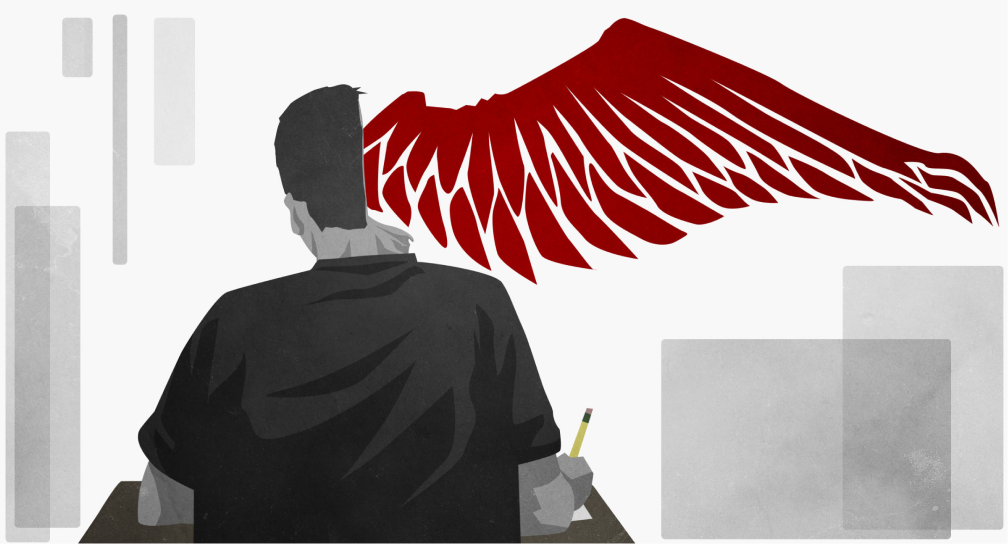
We also continued to draw attention to the many Americans losing their lives because of sky-high drug prices. Mike Ludwig was one of the original reporters exposing the impact of rising insulin costs, and the impact of his work showed this year as politicians engaged in conversations around this issue. Ludwig continued his groundbreaking drug policy reporting, writing about Trump's continued attacks on the Affordable Care Act, the lack of treatment for people battling addiction as the drug war rages on, and progressive Democratic candidates' policies on harm reduction.
Abortion rights issues were suddenly under question following the tragic death of Supreme Court Justice Ruth Bader Ginsburg and the confirmation of conservative Amy Coney Barrett — and with her nomination, the potential repeal of Roe v. Wade. Reporter Amy Littlefield jumped to action, detailing how some people of faith are mobilizing to save Roe and how Barrett’s confirmation would empower Catholic hospitals — often the only ones in rural areas — to deny crucial health care services.
Candice Bernd told the story of mothers reclaiming a vacant home in Oakland in the midst of California's housing affordability crisis.
Henry A. Giroux wrote of Trump's war on youth, while calling for radical social justice education to fight back against fascism. At this historical juncture, Giroux explained, as fascist tyranny threatens to crush the structures of liberation, radical education offers hope for resistance and rehabilitation.
The rise of Trump's allies around the world presented an extremely worrying international political future. With Narendra Modi in India, Jair Bolsonaro in Brazil, Recep Tayyip Erdoğan in Turkey and Boris Johnson in the United Kingdom, far right politics and fascism continued creeping across the world. For instance, targeting minority groups in Brazil, Bolsonaro accelerated catastrophic fires and deforestation in the Amazon rainforest, as Dahr Jamail reported.
Meanwhile, struggles over Brexit continued to ravage U.K. politics. Critical theorist Christian Fuchs noted that Boris Johnson’s demagoguery on Brexit was especially perniciously spread on social media. Political writer Sasha Abramsky reported on yet more Brexit delays, noting that “a Johnson-styled Brexit would remake Britain as an increasingly intolerant, inward-looking country.” Abramsky also analyzed how Johnson lost parliamentary control in favor of stoking violence and riots in the streets.
World renowned linguist Noam Chomsky continued his analysis of domestic and international political affairs, which grew ever more problematic under Trump's chaotic presidency. Together with Richard Falk and Daniel Ellsberg, Chomsky analyzed Trump's assassination of Qassim Suleimani, writing that Congress must forcibly limit Trump's power to attack Iran in order to curb an escalating spiral of lethal events. Noam Chomsky provided consistent, trenchant analysis of the resurgence of political authoritarianism through his interviews with C.J. Polychroniou. They discussed everything from Trump's disastrous foreign policy in Syria to the ways in which the world must transform away from global capitalism as the Doomsday Clock inches closer to midnight.
Mike Ludwig analyzed Trump's meeting with Turkey's authoritarian President Erdoğan, which seemed intended to distract from the impeachment hearings. Professor Stephen Zunes wrote that Trump’s Israel-Palestine peace plan, which would establish apartheid-like conditions, were too extreme even for the former Israeli right-wing prime minister, Ehud Olmert.
Contributing writer Lindsay Koshgarian meticulously analyzed the U.S.'s prioritization of the Pentagon over all other budget areas and the mass funneling of federal dollars to military contractors; Mike Ludwig reported on the progressive rebellion against a Congressional military spending package; and Koshgarian argued that cutting funding for the Pentagon can allow a refocus on urgent humanitarian needs and that ending all our wars would be the most effective way to do so.
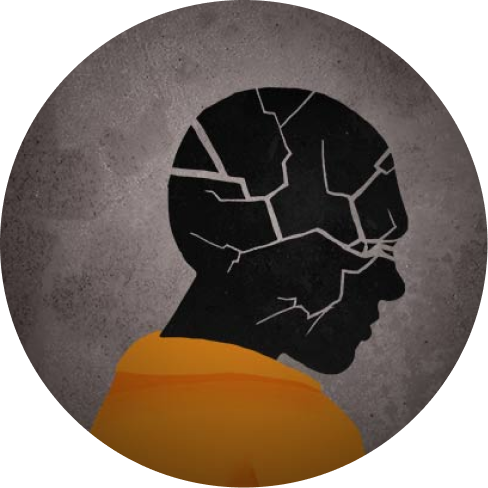
Truthout friend and contributing author, Lacino Hamilton, was exonerated in 2020 after serving 26 years in prison for a murder he didn’t commit. Hamilton credits Truthout with helping raise awareness that led to his release.
Launched in 2020, "Movement Memos" is an ongoing call to action for movement work and mutual aid efforts around the country.
Our book, Who Do You Serve, Who Do You Protect?, which documents and explores the realities of police violence against minority communities, was downloaded freely over 85,000 times in 2020.
In 2020, The New Press published Truthout editor-in-chief Maya Schenwar and journalist Victoria Law’s new book on how prisons can extend beyond the prison walls.
We launched our series, "Despair and Disparity: The Uneven Burdens of COVID-19" to highlight the ways in which the crisis has both been fueled by — and has exacerbated — existing inequalities, injustices and oppressions often went unseen.
Ahead of the 2020 general election, Truthout launched a special series, “Voting Wrongs,” to expose the injustices that disenfranchise vast numbers of people — and the bold efforts that seek to transform the way the United States does “democracy.”
As uprisings against policing spread across the country, Truthout compiled its many years of reporting and analysis about police and prison abolition into a featured series, “Road to Abolition,” to serve as a resource for both newcomers to the concept and longtime abolitionists.
Truthout is charging up to take on an eventful year, full of courageous journalism. We’ll continue to dedicate ourselves to crucial coverage of the COVID-19 pandemic’s impacts: In addition to deep reporting, we’re planning analysis from epidemiologists, economists, mutual aid activists, health justice advocates, and more. As the transition to a new presidential administration plays out, we’ll keep covering breaking stories while also bringing you insights into the ongoing force of Trumpism and the influence of the far right. We’ll analyze Biden’s appointments, policy platforms and executive orders, and continue to cover both Republican and Democratic politicians’ actions through a lens that prioritizes confronting structural injustice and oppression. We will lift up the visions of activists and progressive experts for the policies and practices that will create the world we want — and need.
We promise that, beyond any electoral politics, we will thoughtfully and critically cover the issues that most impact humanity and the planet. We’ll dedicate ourselves to intrepid reporting and analysis on the climate crisis, health care, prisons and policing, racial and gender justice, war and militarism, labor rights and economic justice, LGBTQ rights, education, disability justice, and more. And we’ll chronicle the grassroots movements for liberation that remain our true hope for a more just and life-affirming world.
Credible information is our most potent weapon in this strange and terrible age.
When you donate to Truthout you help us amplify the voices of journalists, activists and changemakers who are working tirelessly to improve the world.
The reality of being a nonprofit news site that doesn't run ads, doesn't sell your info, doesn't have a paywall and doesn't have a billionaire owner lurking in the boardroom is that we depend on our readers for support.
Whether you can chip in $10, start a small monthly donation, or make a significant investment in our work, you'll be empowering trustworthy journalism at a time when it's needed the most.
Please, do what you can today.
Become a monthly sustainer to help
us grow and plan for the future.
Make an investment in trustworthy journalism.